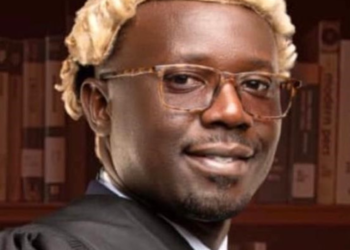Improve the lives of all, not just chiefs
PRESIDENT Hakainde Hichilema has an obligation to improve the lives of all the citizens as he promised them during campaigns before the 2021 general elections. He should not only appease traditional leaders with monetary tokens.
Hichilema’s announcement that government will increase chiefs’ salaries is welcome, although the timing is wrong. We say the timing is wrong because this act can be misconstrued as an attempt to sway traditional leaders into encouraging their subjects to vote for him and the United Party National Development (UPND) in next year’s general elections.
Although we acknowledge that traditional leaders play a significant role in national affairs and should be treated the same as other citizens, it is crucial that concerns about welfare and salary increments cut across the entire civil service, including the private sector. It is important for government to create a conducive environment that promotes staff welfare in the civil service and putting in place measures to ensure that the private sector thrives.
Therefore, Hichilema and his government have an obligation to improve conditions of civil servants, not just for traditional leaders. It is prudent to do so because Zambians are currently facing an unprecedented high cost of living, exacerbated by long hours of load shedding, high pump prices of fuel and the high price of essential commodities like mealie-meal and cooking oil, among others. This is the harsh reality affecting majority Zambians, not just traditional leaders.
Improving salaries for civil servants can lead to better motivation and productivity, attract qualified personnel, improve service delivery and reduce reliance on corrupt practices.
Therefore, we agree political scientist Dr Chris Zuman Zimba that Hichilema’s intention to increase allowances for chiefs and their retainers in next year’s national budget are a good political statement but it has come too late.
“Most stakeholders, including chiefs, have already formed an opinion about what they want to see next year,” Dr Zimba said.
In an interview, Dr Zimba described Hichilema’s statement as a bad political gesture meant to appease chiefs because he needs them most ahead of next year’s general elections.
During the 2025 Kulamba Traditional Ceremony of the Chewa people of Malawi, Mozambique and Zambia in Katete District, Eastern Province, at the weekend, Hichilema announced his government would consider increasing chiefs’ and retainers’ allowances in the next budget.
“Hichilema’s statement is motivated by politics and electioneering. It is a political reaction to the growing demands, complaints and aggression against the UPND [United Party for National Development] government that it has neglected traditional leaders and made them more vulnerable than previous governments,” Dr Zimba said.
It is important Hichilema and his colleagues in the New Dawn government to understand that putting the expectations of traditional leaders ahead of the interests of the general public can result in a decline in public trust, a rise in corruption, an uneven allocation of resources, the perpetuation of social inequality and a disengagement of citizens from regional and national development programmes.
It can be interpreted as an attempt to influence and win over traditional leaders during a campaign when a government raises their salary prior to a general election. This could result in allegations of vote buying, corruption and compromising the integrity of the political process.
Concerns by opposition parties and critics may not be not far-fetched when they conclude that Hichilema decision to increase salaries for chiefs and their retainers amounts to bribery or a blatant attempt to manipulate next year’s general election. This has the potential to further polarise the political landscape and damage the government’s reputation.
Increasing the salaries of traditional leaders, especially close to an important election, can be seen as a form of corruption, where the government is using public funds to buy votes. This has the potential to erode public trust in the government’s integrity and the credibility of the results of next year’s general election.
In addition, communities lose faith in the government and traditional institutions when they see that their traditional leaders are compromising the general welfare in order to appease political benefactors for their personal benefit.
We believe that while increasing the salaries for traditional leaders and their retainers is welcome, the timing is wrong and sinister. No one would have questioned the motive behind such a decision if it was done in Hichilema’s first year in office.
The chiefs should not be excited by the offer. They must be mindful of how their subjects are likely to perceive the ‘gifts’ from government from which do not stand to benefit.

























